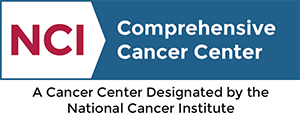
Skin cancer is on the rise, but these steps can reduce risks and catch cancer early.
Skin cancer is becoming more common. One in two men and one in three women will develop nonmelanoma skin cancer in their lifetime. Having a nonmelanoma type makes you at higher risk of developing more skin cancers, including melanoma, the most dangerous form. These trends are especially concerning during summer, when skin-damaging ultraviolet (UV) rays are most intense and sunshine is most abundant. But advice from experts at RWJBarnabas Health (RWJBH) and Rutgers Cancer Institute—the state’s only NCI-Designated Comprehensive Cancer Center—can help lower the risks of developing skin cancer, catch worrisome skin growths early and treat threats both quickly and effectively.
Here are key steps to keeping skin cancer-free.
Shield Your Skin
Protection begins with avoiding or blocking radiation from sunlight.
- Seek shade: Stay out of the sun if possible, especially between 10 a.m. and 4 p.m., when UV rays are strongest. Keep in mind that UV exposure occurs even on cloudy days, and radiation from the sun can damage skin regardless of skin tone. UV rays can also bounce off surfaces such as water, so avoid reflected light as well
- Cover up: If possible, wear darker fabrics with tighter weaves, which provide the greatest UV protection, or wear clothing designed to protect against the sun. Wear a hat, preferably broad-brimmed, and UV-filtering sunglasses.
- Apply sunscreen: Cover exposed skin with ample sunscreen whenever you’re outdoors. Don’t rely on makeup for protection; slather your face with sunscreen that has a sun protection factor (SPF) of at least 30 before applying makeup. Reapply sunscreen at least every two hours.
Watch For Warning Signs
Be alert for anything that doesn’t look right. Especially watch moles or spots for signs of dangerous melanoma that are spelled out by a memory aid known as the ABCDEs.
- A for asymmetry: One side of a mole doesn’t match the other.
- B for border: Edges are irregular, ragged, notched or blurred.
- C for color: Color varies and may include different shades of brown, black, tan or even red, white or blue.
- D for diameter: A spot is larger than about the size of a pencil eraser—typical of malignant (cancerous) moles, though malignant growths can sometimes be smaller at first.
- E for evolution: The mole changes in size, shape or color, or develops new traits such as growing higher or crustier.
Seek Treatment
When skin cancer is caught early, treatments have high success rates. A collaborative, multidisciplinary team of RWJBH/Rutgers Cancer Institute surgical, radiation and medical oncologists along with radiologists, pathologists, nurses and social workers create an individualized plan for each patient that often includes surgery to remove cancerous cells. Methods may include:
- Excision: The tumor and some normal tissue around it are cut from the skin (simple excision) or shaved from the skin’s surface (shave excision).
- Mohs micrographic surgery: A surgeon cuts the tumor from the skin in thin layers, removing as little normal tissue as possible and inspecting each layer and its edges through a microscope until no more cancer cells are seen.
- Electrosurgery: The tumor is cut from the skin and the area is treated with an electric current that curtails bleeding and destroys any remaining cancer cells.
- Cryosurgery: Abnormal tissue is destroyed by freezing it.
- Brachytherapy: A small pellet placed next to a tumor delivers small, precise doses of radiation to get rid of nonmelanoma cancers.
- Advanced therapies: A variety of immunotherapy treatments, targeted therapy, radiation and, less commonly, chemotherapy can be used for cases of advanced skin cancer and/or when patients are unable to have surgery. Clinical trials can also be considered.
Still New Jersey’s Only NCI-Designated Comprehensive Cancer Center

Rutgers Cancer Institute, the state’s only Comprehensive Cancer Center as recognized by the National Cancer Institute (NCI)—together with RWJBarnabas Health (RWJBH), the state’s leading academic health system—scored in the “exceptional” range and was recently redesignated by the NCI, placing it among the top cancer centers reviewed in 2023.
Here, voices of leadership highlight ways in which being an NCI-Designated Comprehensive Cancer Center benefits patients.
Advanced Care: “Redesignation by the NCI reaffirms the value Rutgers Cancer Institute provides to our state through research, treatment, prevention and education, and our commitment to providing integrated, cutting-edge cancer care to those in New Jersey and beyond.”
– Steven K. Libutti, MD, FACS, Director, Rutgers Cancer Institute, and Senior Vice President, Oncology Services, RWJBH
World-Class Resources: “This incredible achievement underscores the partnership between RWJBH and Rutgers Cancer Institute and our shared commitment to provide our patients and communities with access to world-class physicians, clinical trials and services that are transforming cancer care in New Jersey.”
– Mark E. Manigan, President and Chief Executive Officer, RWJBH
Research and Innovation: “Through pioneering clinical trials and cutting-edge research, Rutgers Cancer Institute has evolved our understanding of this disease and helped countless families overcome devastating diagnoses.”
– Phil Murphy, Governor, New Jersey
Learn more about prevention and treatment of skin cancers at RWJBarnabas Health.
 View full issues of Healthy Together magazine by New Jersey region:
View full issues of Healthy Together magazine by New Jersey region: